Theatrical Schools
By
6 years ago
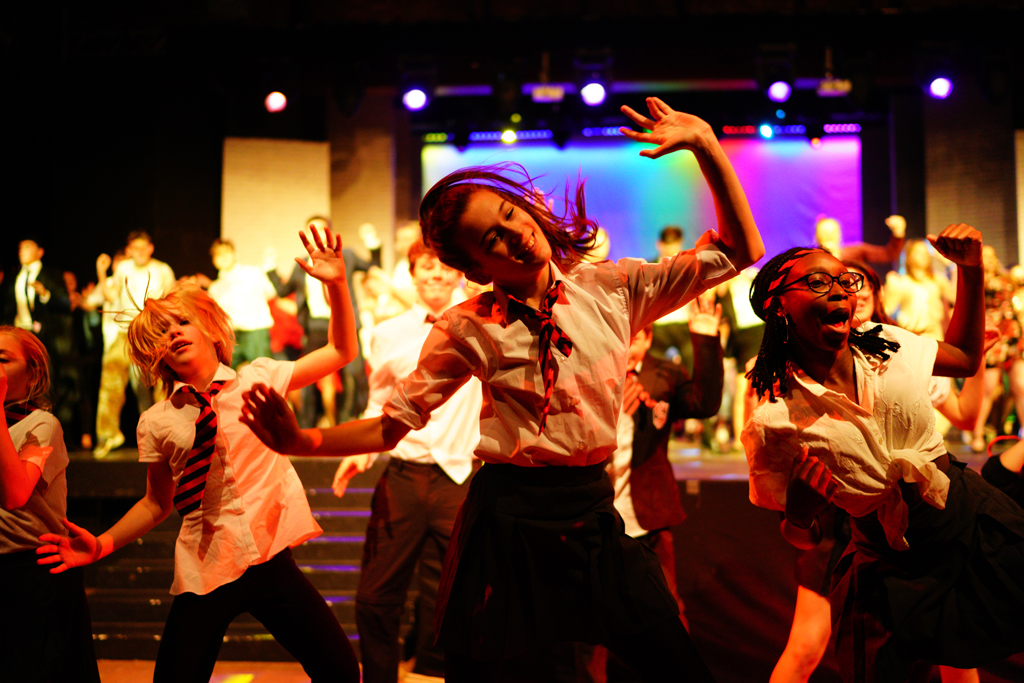
Putting On An Act
Christopher Silvester explores the power of learning to perform in public with some theatrical schools
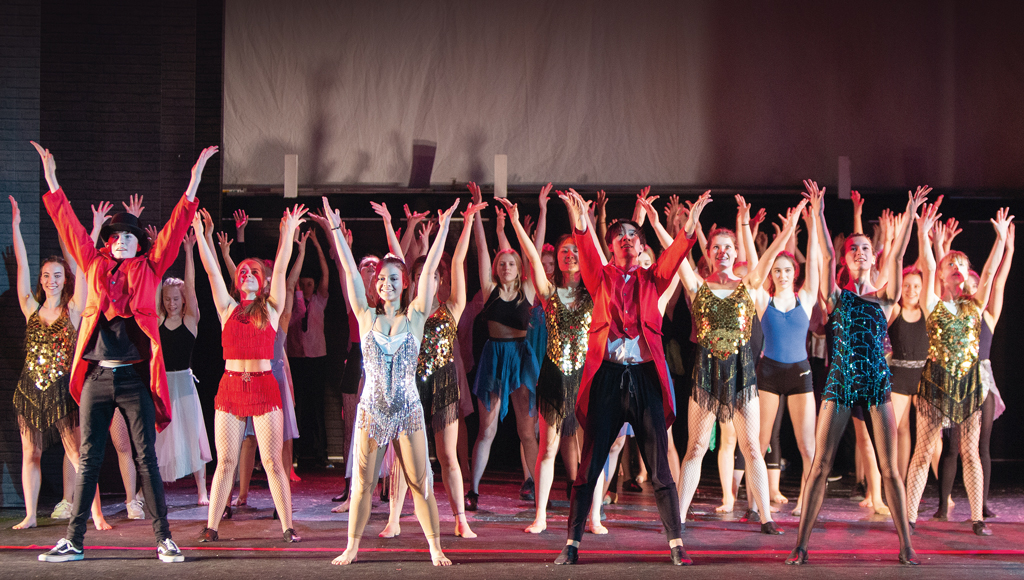
After opening the newly refurbished Rogers Theatre at Malvern College, Worcestershire, and having watched pupils performing Chicago, the actor Simon Callow was moved to comment: ‘It is one of those special, rare spaces which, as you step into it, you feel instantly it appeals and makes you think: I want to make theatre now.’
The space, which began life as an Edwardian boxing stadium, has been transformed with a cavernous glass foyer that is useful for exhibitions, rehearsals and exams and ideal for small-scale performances. The seating design in the auditorium caters for theatre in the round, as well as traditional staging. There is also an integrated, state-of-the-art technical control area beneath a new tension wire grid, giving pupils safe access to lighting and sound equipment. The £4m pound refurbishment, a million of which came from school donors, underlines the importance attached to teaching pupils to stand confidently in front of an audience.
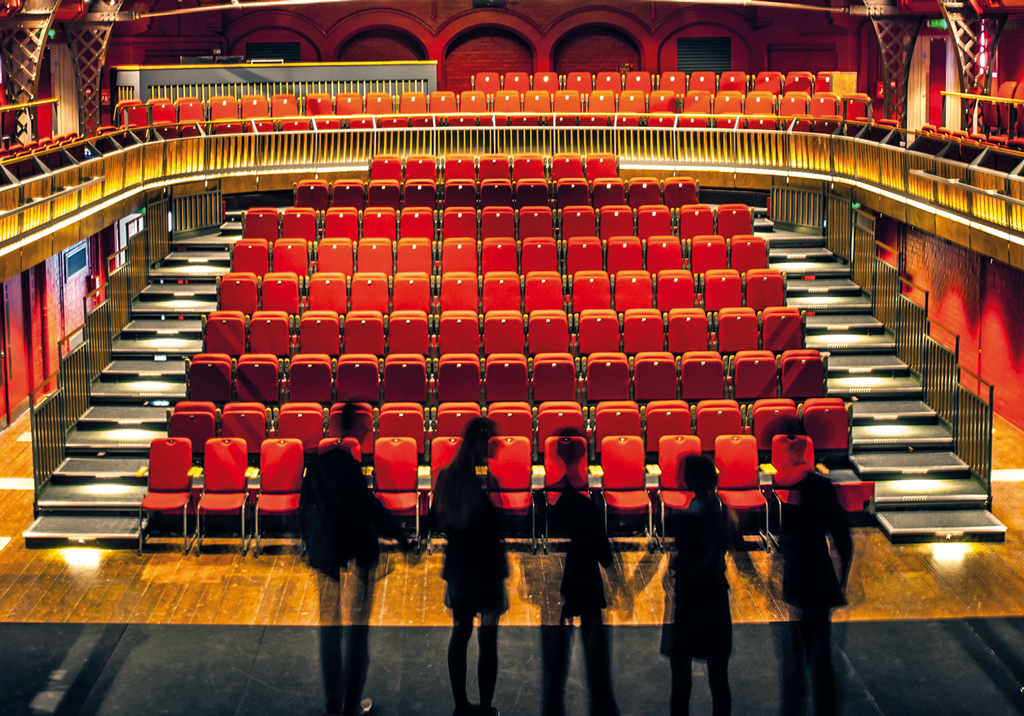
It doesn’t stop with buildings, technological props are also impressive; Lancing College pupils in Sussex were all radio miked for a recent production of the musical Legally Blonde, a far cry from the days when performers in school musicals relied solely on vocal projection. Parents contribute with their own expertise. The end of year sixth-form play at the girls’ prep school, Hanford, Dorset, is always performed audibly in the garden as a sound system is provided by a parent in the music industry, even though their child has long moved on.
Debating and public speaking require little or no technology, but pupils learn not just to read out an essay but to stand up and entertain. ‘Lots of our girls enter debating competitions,’ says Gemma Hargraves, who runs the school’s debating club at King Edward High School for Girls, Birmingham. ‘Learning to produce logical arguments and clear explanations helps with their academic work.’ One of her pupils, 15-year-old Shivanii Arun recently won the national Historical Association Great Debate Contest at Windsor Castle with a speech about the Industrial Revolution’s continuing impact on the mental and physical health of people in Birmingham and the Black Country. Shivanii, who hopes to study Law at Oxford, was praised by the judges for choosing a local subject and for delivering her speech without notes.
Putting on an act is not just about the performers on stage. Stage and technical crew are a vital element in the mix, which is why King Edward’s Witley, Surrey, is expanding its drama provision to include technical theatre. The school’s new Director of Drama, Mrs Lynsey Cleaves, has introduced ‘Tech Club’, to extend theatre skills in lighting and sound to pupils of all ages with practical experience in school productions and exam performances. ‘Theatre is not just about acting,’ says Mrs Cleaves. ‘There are so many career opportunities to be pursued and transferable skills to be learned.’
At Hurtwood House, a mixed boarding school and sixth form college in Dorking, Surrey, ‘We pride ourselves on taking risks and being brave in the rehearsal room’, says Doug Quinn, Head of Performing Arts. ‘Confidence isn’t just about being “loud and proud”; it’s also about feeling brave enough to make mistakes in front of your peers, receive criticism and process feedback.’
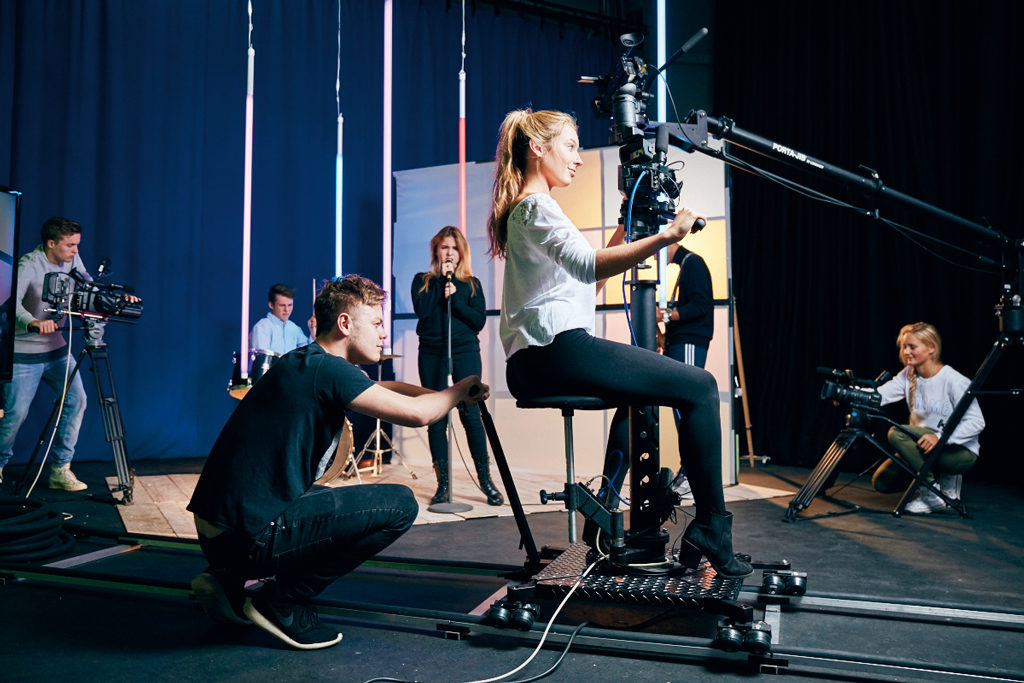
Hurtwood House highlights the ensemble experience, which makes everyone feel valued, and encourages collaboration and ownership of the work. It even has its own Director in Residence in the shape of Andy Johnson, author of bestseller The Excellent Audition Guide, who is forever telling students to ‘make fear their friend’.
You would expect pupils at Tring Park School for the Performing Arts, Hertfordshire, to be well versed in the art of acting. ‘All vocational courses (dance, acting, musical theatre and commercial music) and all ages perform in annual shows to support what the pupils are doing in performing arts classes throughout the year,’ says Marketing Director, Miriam Juviler. Beyond that, the school’s graduating sixth-form dancers undertake a national tour as Encore Dance Company, which helps prepare them for the peripatetic nature of life as a professional dancer, while the lower-sixth actors complete a Theatre in Education project to primary schools across Hertfordshire, which lets them experience the challenges of performing to young audiences.
Appreciating how audiences differ is a vital part of becoming a successful performer. ‘We have many opportunities for which pupils are auditioned, thus giving them experience of the “ups and downs”.’ ‘Of the performing arts,’ says Juviler, ‘these might include performing at the London Coliseum with English National Ballet in their annual production of The Nutcracker; giving musical theatre cabaret performances at the Pizza Express Pheasantry on London’s King’s Road or doing a gig at London’s606 Club as part of the Commercial Music Course.’
Having the confidence to perform in front of people is all about taking small steps. At Farleigh, a Catholic co-ed prep school near Andover in Hampshire, this starts early, at five years old when the pupils are in Reception. From their early years in the pre-prep, every pupil takes part in a variety of public speaking events. Pupils in years five to eight can take part in weekly debating sessions and the school regularly wins inter-school debating and public speaking competitions.
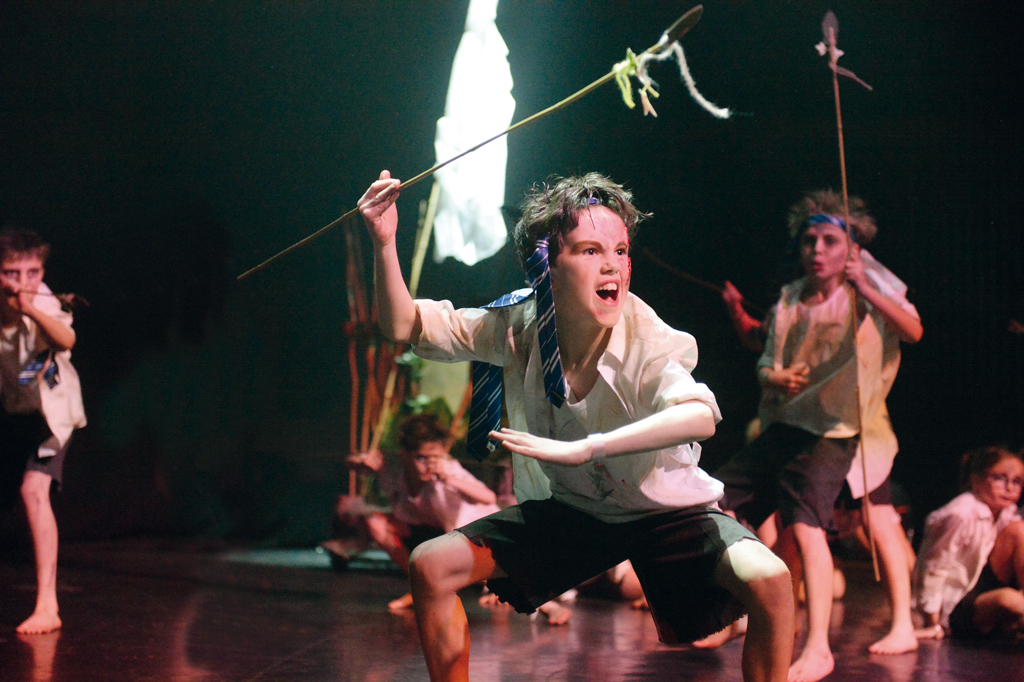
In the past four years, 24 pupils who have started out in Farleigh’s professional theatre, with its tiered seating, have gained awards to their senior schools for drama, music, performing arts or all-round ability in these areas. In years three to five, pupils benefit from timetabled drama lessons, enabling them to develop their use of voice and characterisation skills and to study key texts. In the summer term, they work towards staging their own year group showcase, performing a range of monologues and scenes to an audience of family and friends.
The school’s performing arts provision culminates in years six and eight with whole year group musicals, such as School of Rock, Aladdin and Peter Pan. ‘During rehearsals, cast members are treated like a company of actors and they rise to the challenge, taking notes from their director and working hard to elevate their performance,’ says Head of Drama, Kevin Hession. ‘Every child is involved in whole year group shows and the sense of community they manifest is truly magical.’
At All Hallows, a day and boarding prep school in Somerset, performing is encouraged from the very youngest pupils taking part in the annual nativity, through to year eight pupils taking centre stage in musicals and plays to larger audiences, such as The Addams Family and Peter Pan. ‘Some children are natural performers, others need gentle encouragement, and for others it offers a challenge and a chance to step out of their comfort zone,’ says head, Dr Trevor Richards.
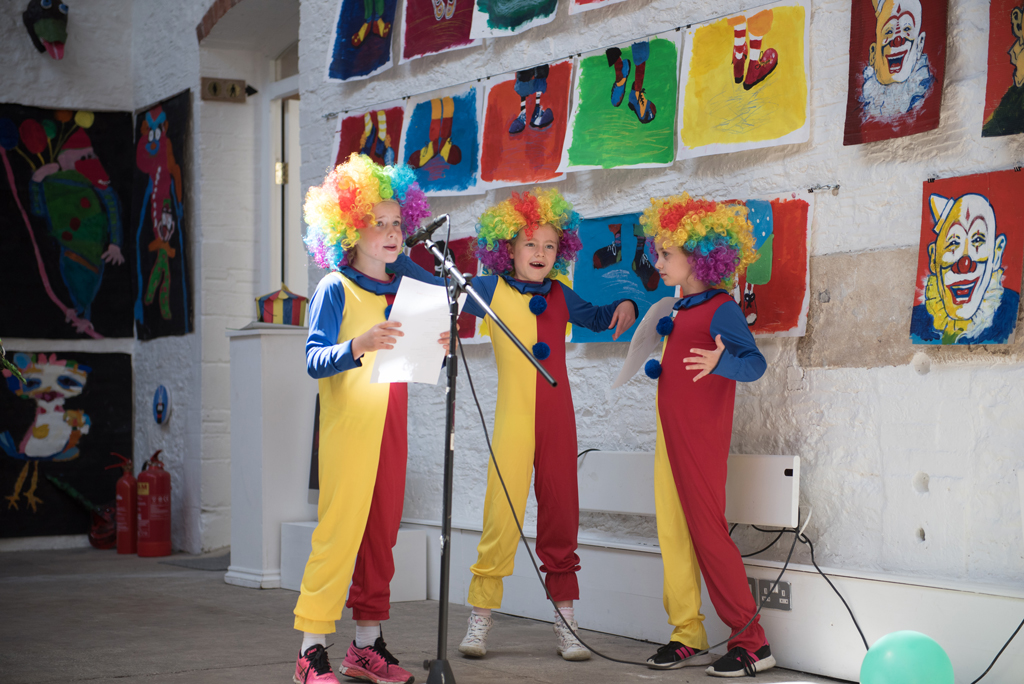
Those who are not keen to appear on stage are encouraged to learn about script, scenery, costumes, lighting and direction. Externally, pupils can take part in LAMDA exams and the Mid-Somerset Festival in Bath, as well as engaging with the local community by singing at nearby residential care homes.
Judith Fremont-Barnes is head of Milton Abbey, Dorset, a small co-ed senior school known for bringing out the best in pupils, who are often struggling with dyslexia. She emphasises inclusivity. ‘At the forefront of our approach is transformational learning for each individual, whatever their starting point, and the building of confidence. Our deliberately small size means all get regular opportunities to participate, whether in sports, performing arts or the classroom. This year, we discovered that 75 per cent of the performers in the school’s production of The Sound of Music had never been on a stage before. I know that many of the pupils who are excelling at Milton Abbey would never be given a chance to shine in a larger school and, therefore, would never have found out what they can do.’
It’s the same with public speaking. Fremont-Barnes recalls a shiver of pride when she watched a young man who had joined the school with real literacy struggles perform a Churchill speech brilliantly in a sixth-form presentation skills workshop. Boys take LAMDA classes/exams and take part in internal and external debates but, this being Milton Abbey, the grand finale is their annual Rock Festival, Rock Hill, at the end of the summer term, with boys and teachers strutting their stuff. ‘Stage diving is allowed,’ says Fremont-Barnes.
With concerts or recitals most weeks, several drama productions every year and a major dance showcase, there is plenty of opportunity and choice for pupils at Dauntsey’s, a co-ed day and boarding school in Wiltshire. Since the first Christmas musical in 1997, Dauntsey’s has built a reputation for staging major productions, including Cats, Miss Saigon, Billy Elliot, Mamma Mia and Les Miserables. ‘Being part of the musical has become a rite of passage at Dauntsey’s,’ says Director of Drama, Rikki Jackson. ‘People watch it, want to be part of it and are inspired to maintain incredibly high standards. We try to give every pupil the opportunity.’
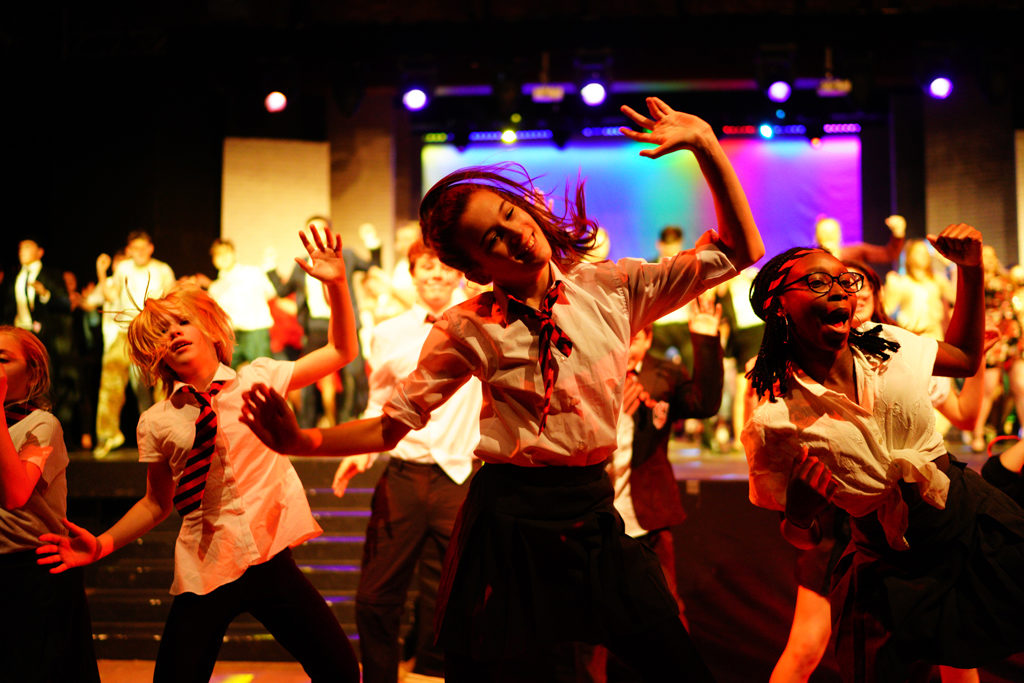
The school also offers extraordinary opportunities in musical performance. ‘An impressive 40 per cent of our pupils learn an instrument,’ says Director of Music, Gareth Harris, ‘and, with 19 school ensembles, ranging from jazz and folk to choirs, a dance band and orchestras, plus 18 bands who perform at our annual Rockfest, around 60 per cent of our pupils are actively involved in music.’ Simon Callow would approve.
This article was originally published in School House Magazine AW19. To read more about the best dramatic schools in UK, click here.



